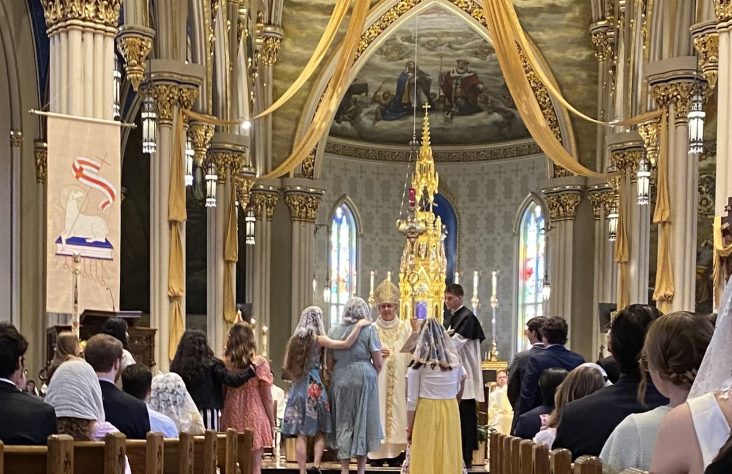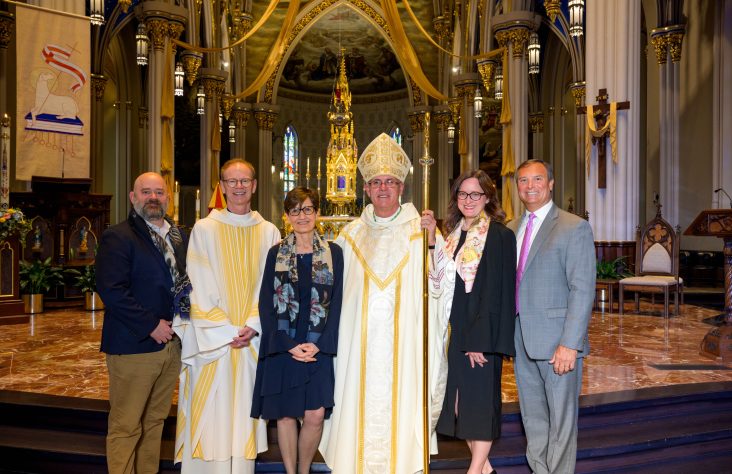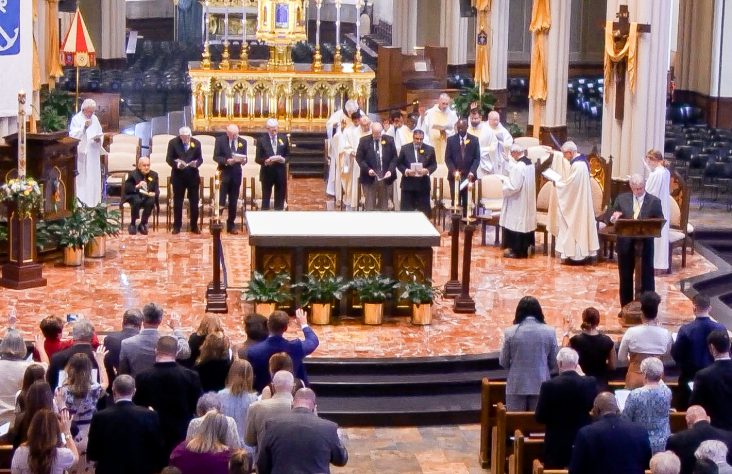January 24, 2023 // National
Indiana High Court Hears Abortion Ban Challenge Invoking ‘Unwritten’ Constitutional Right
INDIANAPOLIS (OSV News) — The Indiana Supreme Court heard oral arguments on Jan. 19 on a case regarding Senate Bill 1, legislation enacted last August that provides sweeping protections for the unborn from abortion except in cases of rape, incest, and in particular medical circumstances where the mother’s life is at risk.
The arguments addressed both a lawsuit filed by the American Civil Liberties Union on behalf of Planned Parenthood and other abortion providers against the state’s Medical Licensing Board regarding the constitutionality of SB 1, and a preliminary injunction on the law as a result of the suit.
The arguments hinged on the question of whether the Indiana constitution protects the right to abortion. The text mirrors that of the Declaration of Independence regarding the right to “life, liberty, and the pursuit of happiness.”
Among those three rights, State Solicitor General Thomas Fisher focused on the word “life.”
“Science tells us that abortion terminates the existence of a distinct, living human being with unique DNA,” he said in his opening statement at the Statehouse in Indianapolis. “Ethics tells us not to end innocent human life.”
Fisher noted the plaintiffs would “urge the Court to acknowledge a novel, unwritten, historically counter-indicated right to abortion” under the state constitution.
He said both the question of the preliminary injunction and the decision in the lawsuit could not be determined “without confronting that question” of whether such a right exists.
Representing the plaintiffs, Attorney Kenneth Falk of the ACLU said in opening remarks that the law injures the plaintiffs by prohibiting them “from providing necessary care to protect the physical and mental health of all Hoosier women. It will severely injure women and girls.”
Regarding the state’s constitutional right to “life, liberty, and the pursuit of happiness,” Falk focused his arguments on “liberty.”
That right “comports with the natural rights philosophy upon which our constitution is based. Liberty has meaning, and its core value is the right to manage the most private assets of our lives, free from unwarranted government interference. This includes the right of a woman to reproductive control.”
Falk said SB 1 “invades the most private of spaces, where a private decision is and must be protected by liberty.”
Regarding the life of the unborn child, Falk argued Indiana law has “never equated the life of the woman with the potentiality of the life that is the fetus.” As to Fisher calling an unborn baby “a distinct, living human being,” Falk labeled the comment “more of an opinion than a statement of fact.”
To define “life,” he turned to the Indiana Criminal Code, which he quoted as identifying “a human being as an individual who is born and is alive.”
Falk said, “Even under our tort law for wrongful injury or wrongful death where it’s possible to get damages for injury or death to a fetus, the fetus has to attain viability.”
At one point, Justice Christopher Goff suggested perhaps the people of the state should have a more direct say on the abortion issue.
“Why shouldn’t there be a referendum and the question put to the people?” he asked. “Why should that end with the courts or the general assembly?”
Fisher noted that citizens “have plenty of places in the process. They’ve elected representatives who enacted this law. There’s an amendment process to go through, and it’s fully available. That’s the system we have in Indiana. … We have a process for [modifying the state Constitution], and that process needs to be respected.”
The oral arguments lasted one hour. The justices will use those arguments and transcripts of the original hearing from the lower court to determine the case at an undisclosed time.
The case before the Indiana Supreme Court followed upon a flurry of legislative and judicial events last summer and fall, sparked by the U.S. Supreme Court overturning Roe v. Wade in June.
The Indiana legislature passed SB 1 in a special session on Aug. 5, 2022, with Gov. Eric Holcomb signing the bill into law the same day.
The law went into effect on Sept. 15. It makes performing abortions a felony at any stage of fetal development with the exceptions of rape and incest (up to 12 weeks of gestation), and fetal abnormalities or medical emergencies (up to 20-22 weeks).
In a Monroe County circuit court on Aug. 30, the ACLU filed its suit against the law on behalf of Planned Parenthood and other abortion providers. On Sept. 22, just one week after the pro-life law went into effect, the judge issued a preliminary injunction, blocking the law until the case was decided.
Indiana Attorney General Todd Rokita bypassed the state’s appellate court and petitioned the Indiana Supreme Court to take up the case and to lift the preliminary injunction.
On Oct. 12, the high court agreed to hear the case, but left the injunction in place until it reached a decision following January’s oral arguments.
Indiana is not the only state that has seen judicial activity on state abortion laws post-Dobbs.
Two rulings were announced on Jan. 5, one in South Carolina favoring abortion and one in Idaho favoring the protection of unborn life.
South Carolina Gov. Henry McMaster signed into law the Fetal Heartbeat Act on Feb. 18, 2021, restricting abortion after six weeks gestation. However, on Jan. 5, South Carolina’s supreme court overturned the state law.
The same day, the Idaho Supreme Court ruled 3-2 to uphold three state laws prohibiting abortion, ruling the state’s constitution provided no implicit right to abortion.
As with Indiana’s SB 1 law, abortions in Idaho will be restricted to cases involving rape, incest, and saving a pregnant mother’s life based on certain criteria.
Natalie Hoefer is a Reporter for The Criterion, the newspaper of the Archdiocese of Indianapolis.
The best news. Delivered to your inbox.
Subscribe to our mailing list today.






